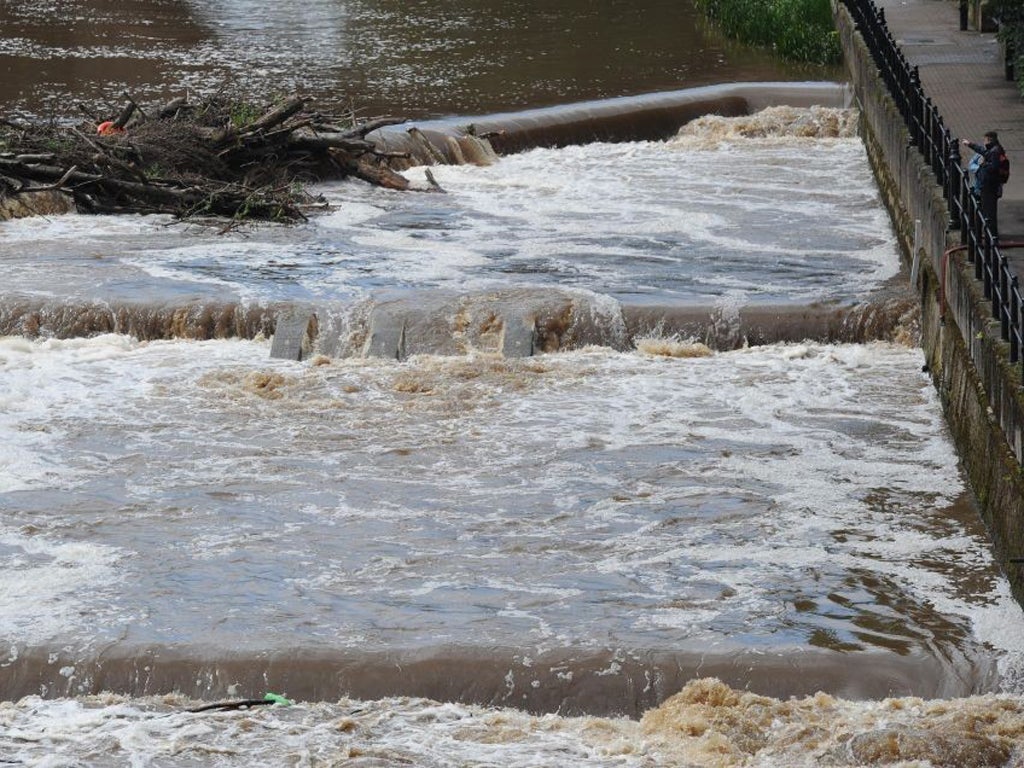Giant hailstones, terrible floods, homes evacuated. Was all of this caused by the 'Spanish plume'?

Your support helps us to tell the story
From reproductive rights to climate change to Big Tech, The Independent is on the ground when the story is developing. Whether it's investigating the financials of Elon Musk's pro-Trump PAC or producing our latest documentary, 'The A Word', which shines a light on the American women fighting for reproductive rights, we know how important it is to parse out the facts from the messaging.
At such a critical moment in US history, we need reporters on the ground. Your donation allows us to keep sending journalists to speak to both sides of the story.
The Independent is trusted by Americans across the entire political spectrum. And unlike many other quality news outlets, we choose not to lock Americans out of our reporting and analysis with paywalls. We believe quality journalism should be available to everyone, paid for by those who can afford it.
Your support makes all the difference.The flash floods that have destroyed homes and businesses, and caused travel chaos across the country could be down to a weather phenomenon known as the “Spanish plume”, meteorologists say.
Hailstones the size of golf balls rained down on the streets of Leicestershire as a unique combination of rare weather conditions led to the creation of “supercell” thunderstorms across the Midlands.
Paul Knightley, senior forecaster at MeteoGroup, said the freak circumstances were created by warm, moist and “unstable” air sweeping up from the south being lifted by a cold weather front and bringing unusually intense downpours.
“What tends to happen is that warm dry air from the Spanish plateau sits on top of more warm, humid air and acts like a lid,” he said.
Air is unable to rise through this hot lid, but as the sun heated the ground below and a cold front came in from the west, “the humid air exploded up into the atmosphere. We also had the winds changing direction, and that can help make the storms even more powerful – creating supercell thunderstorms. This combination is quite rare.”
The Met Office has argued that horrendous weather is simply a result of “intense thunderstorms”.
“The air originated much further south, in the Azores,” said press officer Sarah Holland. “That’s why some areas saw Saharan dust.”
The storms in the Midlands eased today, but not before killing a man in Shropshire, named locally as retired maths teacher Mike Ellis. He had abandoned his car in the road and was walking across fields in Bitterley, near Ludlow, when he was knocked off his feet by a brook which had burst its banks.
The relentless deluges also meant that the Godiva Festival in Coventry’s War Memorial Park – expected to entertain 100,000 revellers this weekend – was cancelled.
Mr Knightley warned that further north, the misery may have only just begun, saying: “In Scotland there have been some active thunderstorms, so I wouldn’t be surprised to see some flash flooding there.”
East Coast and Virgin West Coast trains saw services disrupted, with the former unable to run any trains between Newcastle upon Tyne and Edinburgh. Flooding and landslips saw some passengers report 15-hour train journeys from London to Scotland. Sarah Brown, wife of the former prime minister, tweeted: “I left London on 4pm train and just arrived in Fife at 2am after floods and landslides disrupted travel – hope other travellers all okay.”
In North Tyneside, residents were evacuated by boat as the region was hit by thunderstorms. Twice the average rainfall for the entire month of June fell in less than four hours, with almost four inches in three hours alone. Some 50 properties were abandoned in West Monkseaton, where authorities were concerned about the floods’ lasting impact.
“The system just couldn’t cope, I’ve never seen that amount of rainfall in my life,” said local councillor Bill Caithness. “It’s been pretty horrific for a lot of people: people have had a nightmare experience. The flood waters appear to have dried out but the residual damage is still there, and that’s the tragedy. People’s floors are going to have to be ripped out, and what’s the cost going to be? Lots of residents are getting stuck in and helping out. I wouldn’t say they’re enjoying it but there’s definitely that wartime spirit.”
The shadow environment secretary, Mary Creagh, called for the Government to support local authorities with the cost of clean-up efforts.
Join our commenting forum
Join thought-provoking conversations, follow other Independent readers and see their replies
Comments